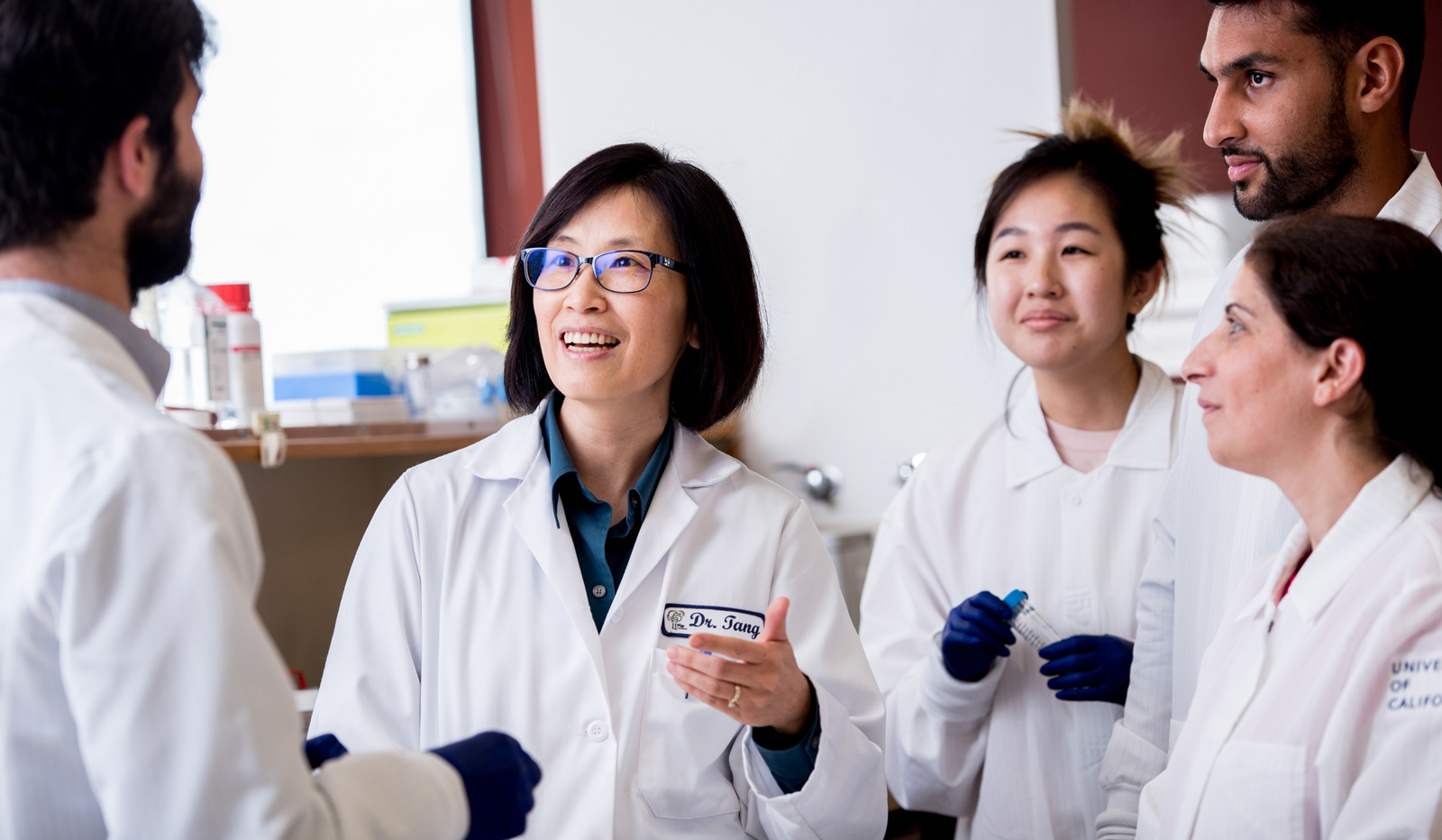Qizhi Tang, Ph.D. One of Featured Speakers at 1st Annual UCSF Immuno"XX": Women in Immunology Symposium
Immunologist Qizhi Tang, Ph.D., professor and director of the Department of Surgery's Transplantation Research Lab and Tang Lab, is one of the featured speakers at the first annual UCSF Immuno"XX": Women in Immunology Symposium on October 22, 2018 and will lead the session on Tolerance and Immunity.
Immuno“XX” is focused on two goals: 1) providing a platform to highlight female scientists from UCSF, and 2) building a community of female immunologists to facilitate collaborations and provide career building opportunities. Synapse, the UCSF student newspaper, recently published an article about the the genesis of the conference.
Where is the XX in immunology? Less than 30% of faculty in the UCSF Immunology department are women. That’s 13% less female representation than the UCSF-wide faculty demographic, where men still hold the majority.
This event was inspired by three students in the immunology graduate program, Camilia Azimi, Casey Burnett, and Tara Mcintyre, who said they were frustrated as first years by the lack of diversity at the faculty mentorship level. They decided to bring awareness by promoting the scientific accomplishments of women within the UCSF community.

Qizhi Tang (second from left), PhD, of the Department of Surgery, is one of the developers of ImmunoX. Photo by Barbara Ries
The ImmunoX Initiative
The conference is hosted by hosted by the UCSF Bakar ImmunoX Initiative, of which Dr. Tang is a co-founder and co-developer. UCSF News called the initiative a “radical collaboration across UCSF” in a recent article:
UC San Francisco is launching the Bakar ImmunoX Initiative, an innovative research program that will promote collaborative, cutting-edge research and data sharing to catalyze discoveries about the central role of the immune system in human health and harness its power to treat a wide range of diseases.
Boosted by a significant new gift from the Gerson Bakar Foundation, ImmunoX aims to break down the barriers that traditionally separate immunology research by disease area, and instead organize the UCSF immunology community around a set of collaborative “CoProjects” that will tackle fundamental questions in the field.
These CoProjects will be conducted within the UCSF CoLabs (previously referred to as Central Research Laboratories), an integrated research platform currently in development. The CoLabs are a pillar of the University’s reimagining of its original campus at Parnassus Heights as a next-generation hub for research, education and patient care. The CoLabs will provide scientists across the University with access to a shared ecosystem of state-of-the-art research facilities for processing clinical tissue samples; performing single-cell genomic, proteomic, and imaging experiments; and analyzing and curating the resulting data.
The UCSF Department of Surgery is a high volume leader in solid organ transplants nationwide, making it well-positioned to unravelling the mechanisms of organ transplant rejection and tolerance.
A driving force behind the initiative is the search for immune patterns across human disease.
The initiative was inspired by a growing recognition that immune cells throughout the body use common tools and programs to respond to many different situations. These include deciding whether to fight off a viral infection or merely contain it when a full response could damage sensitive tissues, or recognizing which bacteria pose a threat and which are helpful and beneficial to the organism’s health.
“We are coming to understand the immune system as the adjudicator of all tissue, the peacemaker as well as the destroyer,” said Matthew “Max” Krummel, PhD, a UCSF professor of pathology and one of the leaders in developing ImmunoX...
To pursue such immune-based therapies for a range of human diseases, Krummel developed the ImmunoX Initiative with colleagues Mark Anderson, MD, PhD, of the UCSF Diabetes Center; Mark Ansel, PhD, and Jason Cyster, PhD, of the Department of Microbiology and Immunology; Jeroen Roose, PhD, of the Department of Anatomy; and Qizhi Tang, PhD, of the Department of Surgery.
